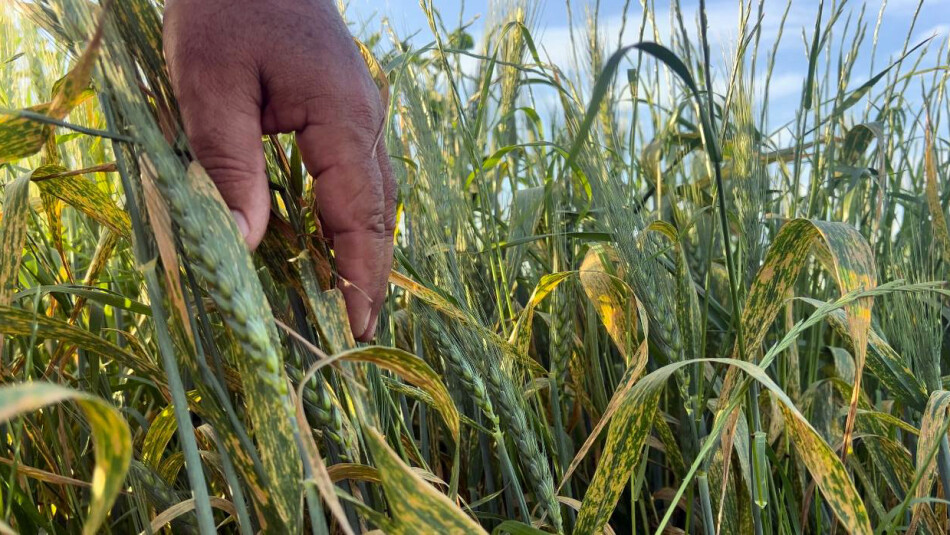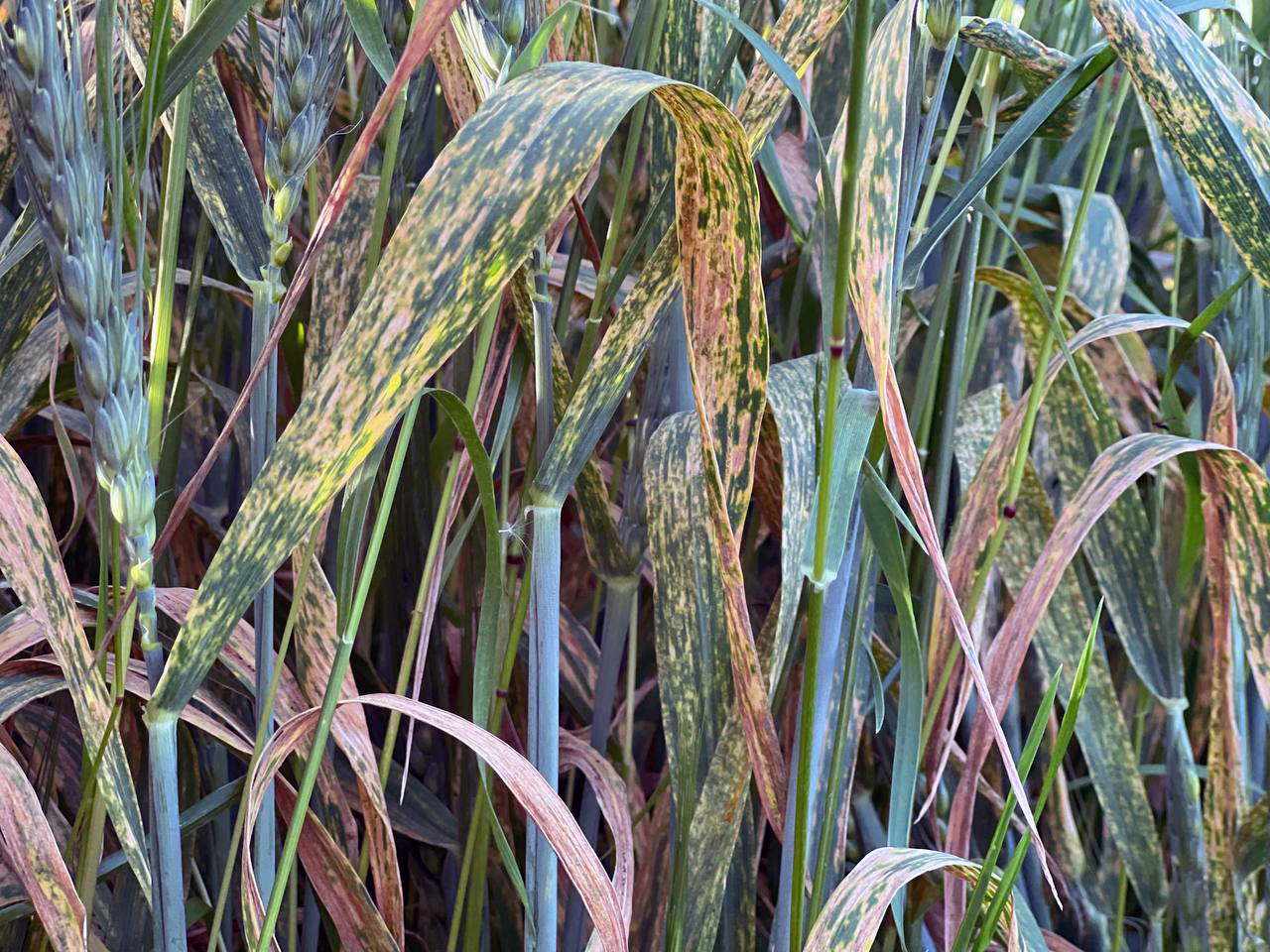
A fungal disease has spread across thousands of hectares of agricultural land in Kirkuk, damaging the wheat crop.
According to KirkukNow's observations, the fungal infection called wheat leaf rust has spread to about 270,00 hectares of land cultivated with wheat within a few weeks.
“The wave of heavy rain that the governorate witnessed last week, followed by high temperatures, contributed to the spread and outbreak of the pest. Within just 24 hours, the disease spread to 30 dunams (3 hectares) of my agricultural land,” Hussein Atty, a farmer in the village of Topzawa in Daquq district, south of Kirkuk, told KirkukNow.
Rust disease spreads at high temperatures and humidity and leads to leaves yellowing, stiffening, and then falling, which hinders the process of photosynthesis and leads to a reduced ability to produce grains.
Agricultural expert Tharwat Bahram told KirkukNow that climate change is one of the causes of the spread of the epidemic, which often causes wheat leaves to dry out within two days.
“The only solution to this disease is spraying fungicides.”
A campaign was launched to spray fungicides on agricultural lands in Kirkuk Governorate to control the epidemic.
Heyman Shakour, a farmer in the village of Yankija in Daquq, says that this disease destroys the leaves and leaves only the stem, thus hindering the growth of wheat grains. “The disease spread over an area of 25 dunums of my agricultural land, although I sprayed the crops, but that did not eliminate the disease completely.”
The multi-ethnic, oil-rich province of Kirkuk, the center of the disputed territories between Baghdad and Erbil, has 1.5 billion square meters of agricultural farmlands, out of which 0.9 billion was allocated for wheat, 2020 statistics of the directorate of Kirkuk agriculture show.
The absence of state support and poor rainfall has sharply dropped down production of crops. Kirkuk Meteorology said total rain in 2021 was only 104mm compared to 283mm in 2020 and 535mm in 2019, as desertification looms over the unknown destiny of Iraq and other countries in the region.
The production of wheat in 2021 was close to 500,000 tons, while in 2020 wheat production will exceed 600,000 tons, Kirkuk's agriculture director said.

The spread of the fungal disease coincides with the approaching harvest season for grain crops in Kirkuk in May.
A source in the Daquq Agriculture Department told (KirkukNow), “Leaf rust disease has spread in Daquq, Hawija, Al-Rashad, and other towns, as a result of climate changes after heavy rains and then high temperatures, but we are seeking to solve the problem and control the epidemic.”
Kirkuk Governorate is distinguished by the fertility of its lands, especially for grain cultivation, as more than 100,000 hectares are planted annually with grain crops, and their production hits half a million tons.
The Iraqi farmers depend on the state in the production of grains, a policy criticized by experts since grains were stored in silos for years in vain and funds were not allocated to pay farmers who delivered their crops to state silos.
The Ministry of Trade stores or buys produce from farmers and distributes it to mills to provide state-subsidized food rations and subsidized floors into markets as bread and rice make the main dish of the Iraqi cuisine.
The Agriculture Ministry supports farmers by providing harvesting tools, seeds, fertilizers, and pesticides at a subsidized rate or for free while farmers call for direct involvement of the state following scarcity of water, frequent waves of dust storms, and unaffordable cost of other necessities.